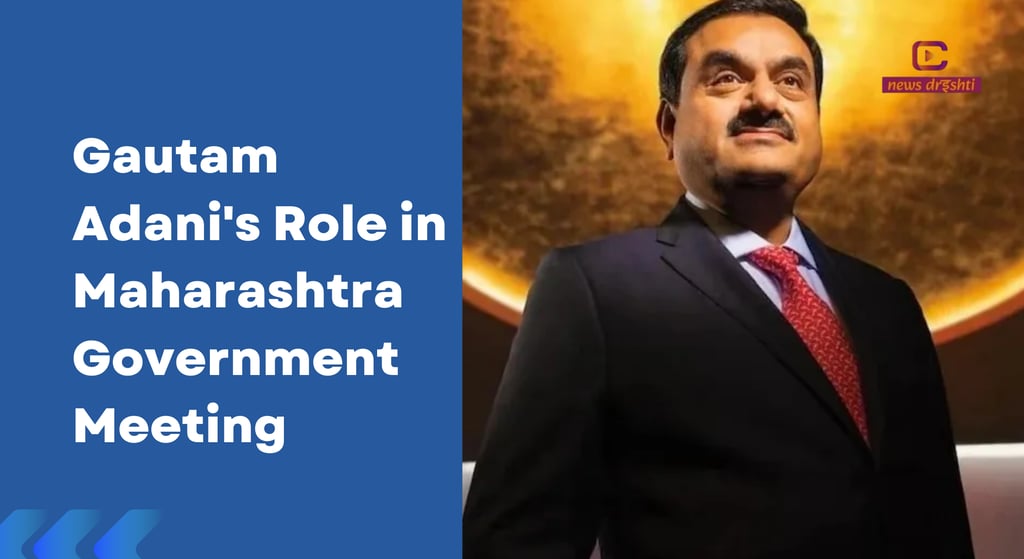Gautam Adani's Role in Maharashtra Government Meeting
The recent involvement of industrialist Gautam Adani in a high-level Maharashtra government formation meeting has raised eyebrows. His presence, alongside key political figures, has sparked curiosi...
NATIONAL


The recent presence of prominent industrialist Gautam Adani in a high-level Maharashtra government formation meeting has sparked widespread public and political curiosity. Held with key political figures in attendance, this meeting was part of the deliberations around the formation of a coalition government in Maharashtra, with many raising questions about Adani’s role and influence within the political sphere. The unusual sight of a private businessman at such a critical political juncture has brought his involvement under scrutiny, especially given the strategic significance of Maharashtra in the business landscape.
The meeting, attended by influential leaders from the ruling coalition, was reportedly aimed at discussing key appointments and strategies for managing the state’s governance amid political challenges. However, Adani’s presence has fueled concerns over corporate influence in state politics, prompting opposition leaders to demand clarity. Critics have argued that the involvement of an industrialist in government formation discussions could lead to potential conflicts of interest, especially when the individual in question heads one of India’s largest conglomerates with major investments in Maharashtra.
Political opponents, including members of the opposition Congress and Nationalist Congress Party (NCP), have raised questions over the meeting’s transparency. Senior opposition leaders have voiced concerns that Adani’s attendance could hint at undue corporate influence in government decision-making processes. “Government formation is a political process, and involving businessmen raises concerns about transparency,” stated an NCP leader. “We need clarity on why Adani was present in this meeting.”
Gautam Adani’s company, the Adani Group, has significant interests in Maharashtra, including infrastructure projects, power generation, and real estate. Analysts have speculated that his presence at the meeting could be connected to future investment opportunities or government policies that could impact the state’s industrial growth. Supporters of the ruling coalition have argued that engaging with business leaders is part of strengthening Maharashtra’s economy, adding that such interactions are essential for fostering public-private partnerships.
This incident has reignited a broader debate over the intersection of business and politics in India. As the economy grows and states compete to attract investment, corporate leaders are often seen engaging with political figures. However, critics maintain that such interactions should be conducted within established boundaries to avoid conflicts of interest and ensure public trust.
As the controversy unfolds, the Maharashtra government has yet to issue an official statement clarifying the purpose of Adani’s participation. With questions lingering about his role, the incident underscores the need for transparency in political processes, especially when private sector figures are involved in discussions of public significance.
